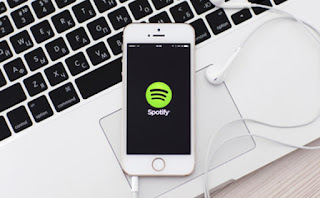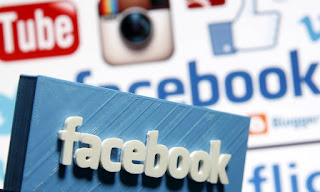Does your case study suggest that new and digital media have had a positive impact by offering audiences a more diverse range of values and ideologies? (48 marks)
New and digital media (NDM) with all its developments in terms of things like user-generated content (UGC) particularly, has had quite a positive impact on audiences. E-media's reference to as the 'the most important medium of the twentieth century' (Briggs and Burke) is testament to this, with there being an estimated 672 billion gigabytes of information in circulation on the internet today. This has undoubtedly given us a diverse range of values and ideologies to embrace, but this could be perceived as as much of a bad thing as a good thing for a number of different reasons.
Blogs and forums are two NDM developments which give us access to a diverse range of values and ideologies. As examples of 'we-media,' they are avenues where audiences themselves are able to actively participate in the production and dissemination of media texts. With blogs for one as online journals/diaries, they can end up actually being more 'detached' and objective in comparison to what we're presented with in mainstream media. This allows those that tend to disagree with the content that they're provided with in the mainstream, a chance to express their dissenting views which is something that's also quite positive from a democracy standpoint. This was demonstrated in 2004 when after Dan Rather, a presenter of the American television programme 60 Minutes on CBS, discussed documents calling into question George W. Bush’s military service record, bloggers worked to speak out against this. An example of one of the blogs used to do this was The Little Green Footballs. With its known right-wing orientation, bloggers on it used the site as a place to present evidence that the documents were forgeries. This resulted not only in an apology from CBS, but more fundamentally an acceptance of blogs as source of both opinions and news by the mainstream media. With this, they help from a surveillance (Blumler and Katz) standpoint since they act as a source of information for audiences whether it be from an alternative viewpoint or not. Forums can be briefly discussed as helping offer this diverse range of values and ideologies with the many-to-many communication that they stipulate. With this it's guaranteed that one will see views that don't necessarily reflect their own, and this helps promote a level of accommodation of different beliefs.
Social networks can also be said to give us this wide range of values and ideologies, but this time through how they've allowed for socially-constructed communities. As stated by Henry Jenkins, social media is an 'arena wherein participatory cultures can be established.' Black Twitter is the best representation of this, where the voicing of perspectives that usually go unheard from get a platform to thrive on, working to challenge some of the negative representations that exist of black people in mass media such as that they're dangerous (Alvarado). Hashtags such as #BlackLivesMatter, #OscarsSoWhite and #ICantBreathe are representative of the conversations that can be brought up because of socially-constructed communities like Black Twitter, with some even reaching the popularity where opinion leaders (two-step) begin to adopt them too e.g. LeBron James. The alternative viewpoint that can be seen perpetuated by communities like this are representative of the positive impact that a diverse range of values and ideologies can have on audiences, as they become more objective to what they're presented with in mass media which is subject to mediation by producers.
Pluralists would align themselves with the points laid out above in that NDM has only had a positive impact by offering audiences a diverse range of values and ideologies. This is all shown by the ever-so popular we-media technologies which have allowed for a 'technological blossoming of the culture of freedom' (Castells, 1996). They encourage increased objectivity from audiences to what they're shown in mainstream media, which is subject to the process of mediation, and this defiance of mainstream is representative of how 'rebellion is encapsulated in the internet' (Keen).
However Marxists would argue that in reality, NDM has actually had a more negative impact by offering audiences a diverse range of beliefs firstly since they can be supported by inaccurate information. NDM's glaring lack of gatekeepers is already a suggestion as the type of information that can be obtained from it. For example on wikias like Wikipedia, false information such as the statement that John Seigenthaler had been involved in the assassination of John F. Kennedy in 1963 and that Tony Blair as a teenager kept posters of Adolf Hitler in his bedroom can be running around. This relates to Andrew Keen in saying that 'web pages and blogs are like a million monkeys typing nonsense.' Twitter in particular is able to exhibit this with the hate groups that can be seen to reside within it. Its structure as a ‘free platform’ has meant that groups like the EDL utilise the platform as a place to communicate hate speech towards particular sections of society. This is all without even mentioning what is the current online phenomenon of 'fake news.' Disseminating on social networks like Facebook, stories such as Pope Francis endorsing Donald Trump and Trump offering free one-way tickets to Africa and Mexico to those wanting to leave the U.S have managed to circulate, with those two stories being among the top hits in terms of fake news stories on the site. With this, NDM can be seen to be more at the detriment of audiences for how it’s helping to spread information of both an undemocratic and untrue nature.
Marxists may also say that with all the developments in NDM, its impact in giving audiences a range of values and ideologies will be limited due to the dominance of news institutions. With how the 'top 5% of all websites accounting for almost 75% of user volume' (Lin & Webster, 2002) it's evident that 'a minority of (media) produces always serve a majority of consumers' (Pareto's Law). Spotify, although not a website, is a service that exemplifies this with its 'Superstar Economy.' In 2013 for example it occurred that the 'top 1% of artists accounted for 77% of recorded music income.' The statistic that ‘most digital services have catalogues of more than 20m tracks are not listened to,’ is something that only proves this further. So even if NDM does provide us with a range of values and ideologies, it's more likely than not the case that audiences won't really embrace them.
On top of this with Spotify in mind, the argument can be put forward that in reality we don't actually receive the range of values and ideologies we think we do and really we're just exposed to the same one. While we do get a sense of a 'runaway world' (Giddens) with the choice of music we have to listen to, the majority of it tends to be solely 'in the interests of profit [...] interchangeable music for a passive childlike and manipulated audience' (Adorno and Horkheimer (1986). This has led to a homogenisation of culture and communication with mainly the US content being at the forefront of this all, lending to the what we see as the cultural imperialism/Americanisation of content. So seeing parallels between both music made in the UK and music made in the US, is something shouldn’t necessarily take one by surprise. With this, it's evident that while we are offered a diverse range of values and ideologies, we're not necessarily embracing different ones and they tend to just be coming from one place [U.S].
In conclusion, NDM can be said to at least offer audiences a diverse range of values and ideologies, but how much of a positive impact it'll have on audiences is limited since it can revolve around misinformation and in reality audiences will end up sticking to the more dominant institutions as a source for this.








